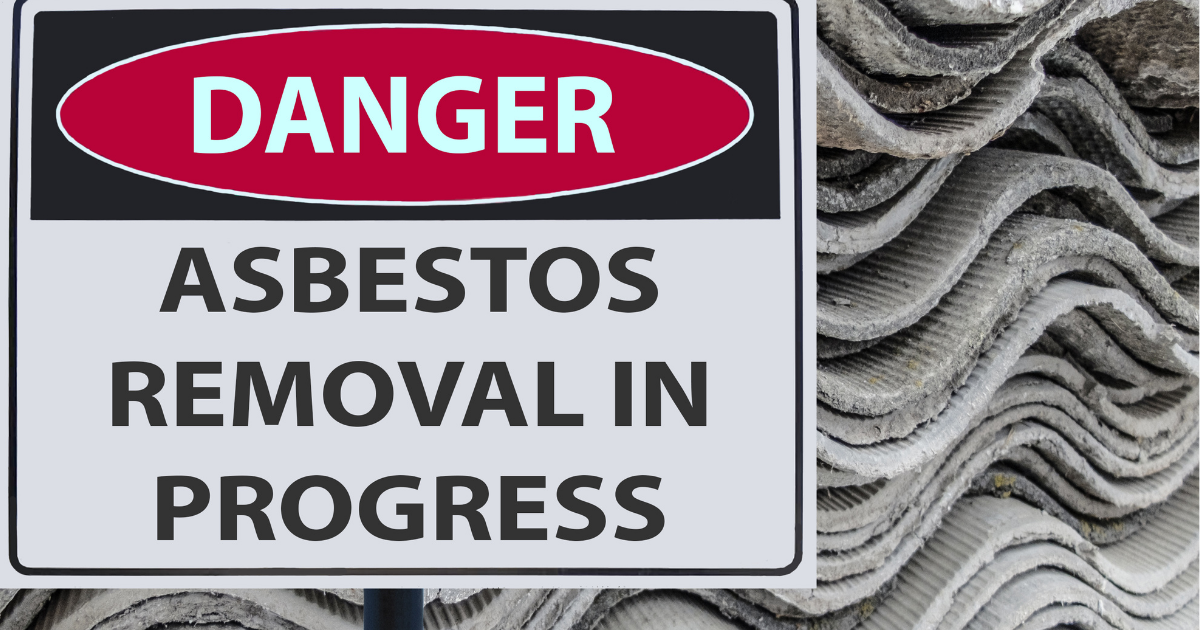
Asbestos was once widely used as a flame-retardant, and it now remains a part of many older homes. Federal laws banned the use of asbestos decades ago, but many older buildings in the greater Philadelphia area and other regions throughout the country still contain asbestos. Asbestos is a heat- and friction-resistant substance that is made from natural organic minerals.
The construction industry formerly used asbestos in virtually every home and commercial building. Various state and federal laws called for the removal of asbestos from school buildings and banned its future use in the housing industry as well as commercial construction projects. However, several decades of use in cities means that a lot of homes and other buildings still contain asbestos.
If you live in a Philadelphia home that was built prior to the 1980s, odds are that asbestos is part of the structure. Whether or not that should concern you mostly matters on how it was installed and whether or not the potential for exposure to asbestos dust could cause mesothelioma.
If you plan to remodel your home, it is best to call a professional. Since mesothelioma is a deadly disease, it is not a good idea for you to remove asbestos from your home by yourself. You need a properly trained and equipped crew that is experienced in hazardous materials to handle any asbestos removal inside your home.
The Environmental Protection Agency (EPA) issued a partial ban on asbestos use in construction in 1989. Asbestos was mostly removed from schools and other public buildings afterward. However, many homes and other structures built prior to the partial ban contain asbestos.
Philadelphia has many buildings that were erected while asbestos was in widespread use. If you have an older home, it could contain asbestos in the pipe insulation, floor tiles, ceiling tiles, wall insulation, roofing materials, and adhesives.
If your home is older and contains any of those items, you might have asbestos inside your home. If so, you and your family are not necessarily at risk of asbestos exposure. As long as the asbestos is sealed and otherwise located away from living areas, it should be harmless.
If you initiate a home improvement project and will work around or remove asbestos, you should hire professionals. Removing anything with asbestos could create a significant amount of dust. Asbestos is a hazardous material and needs to be handled by qualified professionals.
Asbestos becomes dangerous when it is disturbed and can be inhaled or ingested. Asbestos can imbed itself in the lining of your lungs and cause mesothelioma. Mesothelioma often goes undiagnosed for decades. The U.S. Centers for Disease Control and Prevention (CDC) says that mesothelioma can remain relatively dormant for several decades before it is discovered.
When asbestos is exposed to the open air, it can produce microscopic particles that you and your family members could breathe. The fibers lodge into the lining of the lungs and can stay relatively dormant for years. Eventually, the lining of the lungs can develop scar-like tissue due to the continual irritation.
When the irritation and scar tissue become more pervasive, the lungs take in less oxygen. Eventually, the person could die of mesothelioma or another asbestos-related condition. There is no cure for mesothelioma, but many people benefit from chemotherapy, which can be very debilitating.
Whether or not you should remove asbestos from your home depends on the potential level of exposure to asbestos dust. If you have old ceiling tiles that are chipped or otherwise damaged, they could produce asbestos-laden dust. The same goes for floor tiles that are chipped or otherwise damaged, exposed adhesives that contain asbestos, and any piping or wall insulation that could contain asbestos.
When there is a possibility of asbestos exposure, removal is a wise idea. However, you need to have qualified professionals to do the job to ensure you do not suffer exposure. A qualified asbestos disposal service can seal off the work area and use filters and fans to contain all dust while removing the items that contain asbestos.
While most older homes in Philadelphia are the ones that are most likely to contain products with asbestos, some new ones could as well. Imported materials could contain asbestos. If you are unsure whether or not your home contains asbestos, you could have it checked by contacting a qualified contractor to arrange a home inspection.
If you develop mesothelioma due to asbestos exposure in your home, the manufacturer of the product that created the problem could be held liable, depending upon the circumstances. However, the latency period of mesothelioma can make it very difficult to file a claim. The liable party would have to be identified. The party could have even gone out of business. If the party changed ownership, tracing the history can take time.
An experienced lawyer could use a database to trace building ownership and construction permits to see when asbestos might have been placed inside your home. If a professional did not remove asbestos properly from your home, they could be held liable as well.
If you recently received a mesothelioma diagnosis and want to pursue a claim against one or more liable parties, an experienced lawyer is your best bet for success. These cases are complicated, but a lawyer can fight on your behalf.
If you were negligently exposed to asbestos inside your home, you might not know how to start a legal claim. Our Philadelphia mesothelioma lawyers at Brookman, Rosenberg, Brown & Sandler can help you better understand how mesothelioma cases work. You can contact us online or call us at 215-569-4000 to schedule a free consultation. Located in Philadelphia, we serve clients throughout New Jersey and Pennsylvania, including Delaware County, Chester County, and Philadelphia County.